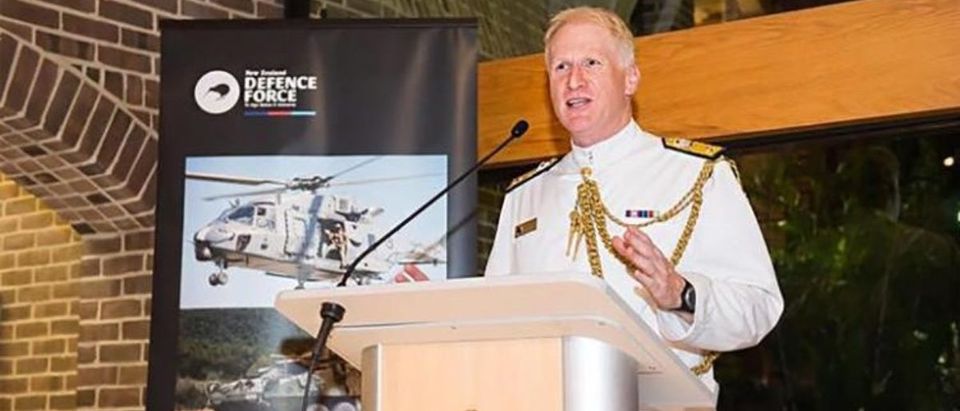A former high-ranking New Zealand official’s trial began on Monday for allegedly planting a hidden camera in a unisex bathroom at the country’s Washington D.C. embassy in 2017, according to CNN.
Former New Zealand naval commodore Alfred Keating appeared in Auckland district court facing a charge of “attempting to intentionally make an intimate visual recording.” Keating pleaded not guilty to the charge and could receive up to a year and a half in prison if convicted. (RELATED: New Zealand Goes Full Islam After Mosque Attacks)
Reportedly placed inside a heating duct in the embassy bathroom, the recording device was found on the floor by a staff driver July 27, 2017, said Crown Prosecutor Henry Steele in his opening address. Unaware of what the device was, the driver placed the camera back on the radiator, where it was later found and turned in by a second staffer using the bathroom.
The small device, which looks like a hard drive or pager, was sent to New Zealand for forensic testing by police. Further examination found more than 20 files on the SD card, which were all made on the same day it was found. The first video file allegedly showed a blue latex-gloved hand place the camera on the wall at around 9:00 a.m.
At around the same time, CCTV caught a man entering the bathroom who is believed to be Keating after investigators examined the embassy’s swipe card records. Additionally, DNA found on the SD card matched that of Keating with Steele citing “extremely strong scientific support.” (RELATED: Mike Pompeo Tells Embassy In Venezuela To Come Home)
In a search of Keating’s home in November 2017, police seized his laptop and found online searches for BrickHouse Security, which is a New York City-based company that sells security systems including hidden cameras. In addition, other searches included how to “set up” the camera and what operational modes were available, added Steele.
ON NOW: Alfred Keating, who was the Senior Defence Attache in Washington DC, has been accused of attempting to make an intimate visual recording in July last year. @nitabp has been looking at court documents relating to the case. https://t.co/G65ib9SsgS pic.twitter.com/nVufi2LdRO
— Checkpoint (@CheckpointRNZ) May 4, 2018
“This was not an act of espionage,” said Steele.
However, Keating’s lawyer Ron Mansfield downplayed the crown prosecutor’s case as a “weak one.”
“They brag to you about the strength of the case,” said Mansfield in his opening statement. “This is a circumstantial case and we say a weak one.”
“The evidence doesn’t tell you who did it and it certainly doesn’t tell you it was Mr. Keating,” he continued.
Keating resigned from his post in the New Zealand Defence Force (NZDF) two days after pleading not guilty to the same charge and electing trial by jury in March 2018.
“Sadly, the allegation I now face has already tarnished my personal and professional reputation before I have even had an opportunity to understand or challenge the case brought against me,” said Keating last year.
Having a career exceeding 40 years, Keating was the highest-ranking embassy official for New Zealand at the time of the charge. His trial is due to last about two weeks.


